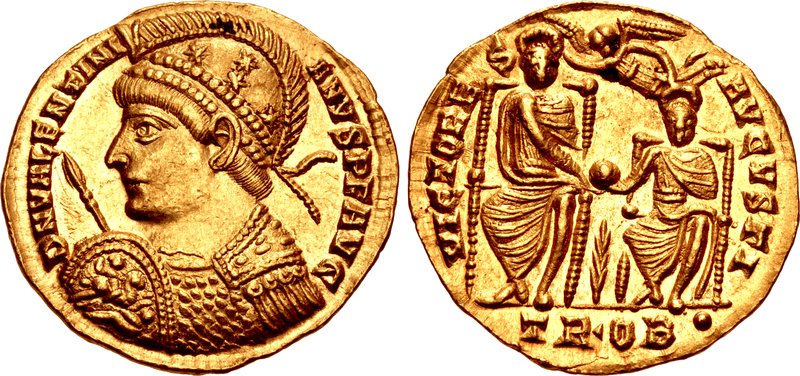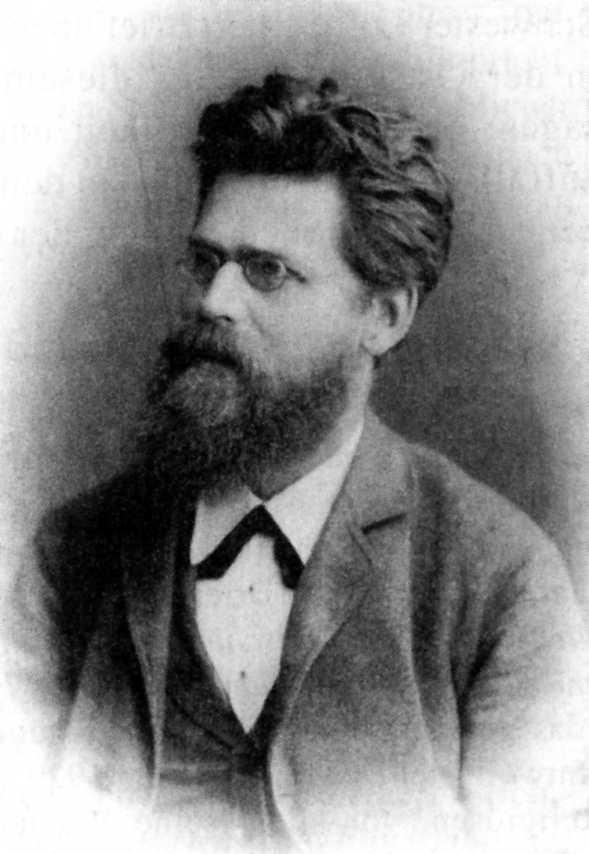|
Lupicinus (magister Equitum)
Flavius Lupicinus was a Roman military commander in the 4th century AD. He was appointed '' magister equitum'' in 357, but fell out of favour when he refused to side with Julian when the army declared him Augustus. After Julian's death, he was appointed ''magister equitum per orientes'' in 363. In 365, he was the senior commander in the emperor Valens' campaign against the usurper Procopius, and following the defeat of Procopius was made consul in 367. Military service During the reign of Emperor Constantius II, Lupicinus was named (commander of cavalry) in 357. Lupicinus took a leading role in the campaign of Emperor Julian along the Rhine against the Salian Franks and the Alemanni. In one instance, he devised a successful plan whereby 300 Roman troops secretly crossed the Rhine at night and attacked the Alemannic camp on the opposite bank. This allowed the main body of Julian's army to cross and quickly defeat and accept the surrender of the five confederated Alemannic kin ... [...More Info...] [...Related Items...] OR: [Wikipedia] [Google] [Baidu] |
Magister Equitum
The , in English Master of the Horse or Master of the Cavalry, was a Roman magistrate appointed as lieutenant to a dictator. His nominal function was to serve as commander of the Roman cavalry in time of war, but just as a dictator could be nominated to respond to other crises, so the ''magister equitum'' could operate independently of the cavalry; like the dictator, the appointment of a ''magister equitum'' served both military and political purposes.''Dictionary of Greek and Roman Antiquities'', pp. 404–408 ("Dictator"). Origin In the time of the Roman Kingdom, the king himself would lead the cavalry into battle, or else delegate this authority to his chief advisor, the Tribune of the Celeres, the cavalry unit that also served as the king's personal bodyguard. The last person to hold this position was Lucius Junius Brutus, nephew of Lucius Tarquinius Superbus, the seventh and final King of Rome. After the rape of Lucretia, it was Brutus who, in his capacity as Tribune of t ... [...More Info...] [...Related Items...] OR: [Wikipedia] [Google] [Baidu] |
Consulship
A consul held the highest elected political office of the Roman Republic ( to 27 BC), and ancient Romans considered the consulship the second-highest level of the ''cursus honorum'' (an ascending sequence of public offices to which politicians aspired) after that of the censor. Each year, the Centuriate Assembly elected two consuls to serve jointly for a one-year term. The consuls alternated in holding ''fasces'' – taking turns leading – each month when both were in Rome and a consul's ''imperium'' extended over Rome and all its provinces. There were two consuls in order to create a check on the power of any individual citizen in accordance with the republican belief that the powers of the former kings of Rome should be spread out into multiple offices. To that end, each consul could veto the actions of the other consul. After the establishment of the Empire (27 BC), the consuls became mere symbolic representatives of Rome's republican heritage and held very little p ... [...More Info...] [...Related Items...] OR: [Wikipedia] [Google] [Baidu] |
4th-century Roman Consuls
The 4th century (per the Julian calendar and Anno Domini/Common era) was the time period which lasted from 301 ( CCCI) through 400 ( CD). In the West, the early part of the century was shaped by Constantine the Great, who became the first Roman emperor to adopt Christianity. Gaining sole reign of the empire, he is also noted for re-establishing a single imperial capital, choosing the site of ancient Byzantium in 330 (over the current capitals, which had effectively been changed by Diocletian's reforms to Milan in the West, and Nicomedeia in the East) to build the city soon called Nova Roma (New Rome); it was later renamed Constantinople in his honor. The last emperor to control both the eastern and western halves of the empire was Theodosius I. As the century progressed after his death, it became increasingly apparent that the empire had changed in many ways since the time of Augustus. The two emperor system originally established by Diocletian in the previous century fell in ... [...More Info...] [...Related Items...] OR: [Wikipedia] [Google] [Baidu] |
4th-century Romans
The 4th century (per the Julian calendar and Anno Domini/Common era) was the time period which lasted from 301 ( CCCI) through 400 ( CD). In the West, the early part of the century was shaped by Constantine the Great, who became the first Roman emperor to adopt Christianity. Gaining sole reign of the empire, he is also noted for re-establishing a single imperial capital, choosing the site of ancient Byzantium in 330 (over the current capitals, which had effectively been changed by Diocletian's reforms to Milan in the West, and Nicomedeia in the East) to build the city soon called Nova Roma (New Rome); it was later renamed Constantinople in his honor. The last emperor to control both the eastern and western halves of the empire was Theodosius I. As the century progressed after his death, it became increasingly apparent that the empire had changed in many ways since the time of Augustus. The two emperor system originally established by Diocletian in the previous century fell in ... [...More Info...] [...Related Items...] OR: [Wikipedia] [Google] [Baidu] |
List Of Late Imperial Roman Consuls
A ''list'' is any set of items in a row. List or lists may also refer to: People * List (surname) Organizations * List College, an undergraduate division of the Jewish Theological Seminary of America * SC Germania List, German rugby union club Other uses * Angle of list, the leaning to either port or starboard of a ship * List (information), an ordered collection of pieces of information ** List (abstract data type), a method to organize data in computer science * List on Sylt, previously called List, the northernmost village in Germany, on the island of Sylt * ''List'', an alternative term for ''roll'' in flight dynamics * To ''list'' a building, etc., in the UK it means to designate it a listed building that may not be altered without permission * Lists (jousting), the barriers used to designate the tournament area where medieval knights jousted * ''The Book of Lists'', an American series of books with unusual lists See also * The List (other) * Listing (di ... [...More Info...] [...Related Items...] OR: [Wikipedia] [Google] [Baidu] |
Dagalaifus (magister Equitum)
Dagalaifus was a Roman army officer of Germanic peoples, Germanic descent. A pagan, he served as Roman consul, consul in 366. In the year 361, he was appointed by Emperor Julian as ''comes domesticorum'' (Commander of the Household Guard). He accompanied Julian on his march through praetorian prefecture of Illyricum, Illyricum to quell what remained of the government of Constantius II that year. He led a party into Sirmium that arrested the commander of the resisting army, Lucillianus (magister equitum), Lucillianus. In the spring of 363, Dagalaifus was part of Julian's ultimately-disastrous invasion of Persia. On June 26, while still campaigning, Julian was killed in a skirmish. Dagalaifus, who had been with the rear guard, played an important role in the election of the next emperor. The council of military officers (including Dagalaifus) finally agreed on the new ''comes domesticorum'', Jovian (emperor), Jovian, to succeed Julian. Jovian was a Christian whose father Varronianus ... [...More Info...] [...Related Items...] OR: [Wikipedia] [Google] [Baidu] |
Gratian
Gratian (; la, Gratianus; 18 April 359 – 25 August 383) was emperor of the Western Roman Empire from 367 to 383. The eldest son of Valentinian I, Gratian accompanied his father on several campaigns along the Rhine and Danube frontiers and was raised to the rank of ''Augustus'' in 367. Upon the death of Valentinian in 375, Gratian took over government of the west while his half-brother Valentinian II was also acclaimed emperor in Pannonia. Gratian governed the western provinces of the empire, while his uncle Valens was already the emperor over the east. Gratian subsequently led a campaign across the Rhine, attacked the Lentienses, and forced the tribe to surrender. That same year, the eastern emperor Valens was killed fighting the Goths at the Battle of Adrianople, which led to Gratian elevating Theodosius to replace him in 379. Gratian favoured Nicene Christianity over traditional Roman religion, issuing the Edict of Thessalonica, refusing the office of '' pontifex maximus'' ... [...More Info...] [...Related Items...] OR: [Wikipedia] [Google] [Baidu] |
The Prosopography Of The Later Roman Empire
''Prosopography of the Later Roman Empire'' (abbreviated as ''PLRE'') is a work of Roman prosopography published in a set of three volumes collectively describing many of the people attested to have lived in the Roman Empire from AD 260, the date of the beginning of Gallienus' sole rule, to 641, the date of the death of Heraclius. Sources cited include histories, literary texts, inscriptions, and miscellaneous written sources. Individuals who are known only from dubious sources (e.g., the '' Historia Augusta''), as well as identifiable people whose names have been lost, are included with signs indicating the reliability. A project of the British Academy, the work set out with the goal of doing The volumes were published by Cambridge University Press, and involved many authors and contributors. Arnold Hugh Martin Jones, John Robert Martindale, and John Morris were the principal editors. *Volume 1, published on March 2, 1971, comes to 1,176 pages and covers the years from 260 to ... [...More Info...] [...Related Items...] OR: [Wikipedia] [Google] [Baidu] |
Otto Seeck
Otto Karl Seeck (2 February 1850 – 29 June 1921) was a German classical historian who is perhaps best known for his work on the decline of the ancient world. He was born in Riga. He first began studying chemistry at the University of Dorpat but transferred to the University of Berlin to study classical history under Theodor Mommsen. Seeck earned his doctorate from the University of Berlin in 1872 after writing his thesis on the ''Notitia Dignitatum'', a document enumerating the roles and responsibilities of administrative officials of the later Roman empire c. 400 AD. He habilitated under Mommsen in Berlin in 1877 and, with the help of Mommsen, secured a post at the University of Greifswald in 1881, where he taught Roman History and Archaeology. There he met Karl Julius Beloch. In 1907 he went to the University of Münster where he continued teaching and writing. Seeck wrote many influential works on late antiquity and social Darwinism. He was widely published in such academi ... [...More Info...] [...Related Items...] OR: [Wikipedia] [Google] [Baidu] |
Lupicinus (comes Per Thracias)
Lupicinus ( 368–377) was a Roman army officer in late antiquity who served under the emperors Valentinian I and Valens. He distinguished himself in the fighting the Alemanni in 368. He was serving as a military tribune in Pannonia in 376. Lupicinus was serving as the commander of Roman troops in the diocese of Thrace () in c. 377 during the events which resulted in the Gothic War. There he oversaw the settlement of the Goths within the empire along the Lower Danube, after which, he and the Maximus foolishly proceeded to extort and starve them. At one point, they slaughtered dogs and offered them to the starving tribes at the price of 1 boy to be sold into slavery for 1 dog. Famished and humiliated, the Goths broke into an open revolt that led to the Gothic War of 376 and the catastrophic Battle of Adrianople in which the emperor Valens was killed. After orchestrating a failed assassination attempt of the Gothic leaders while ostensibly meeting with them to discuss a peace, ... [...More Info...] [...Related Items...] OR: [Wikipedia] [Google] [Baidu] |



